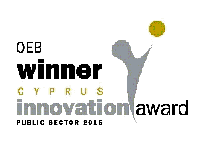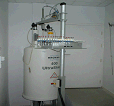
SCOPE
 The Food Authenticity - NMR laboratory - equipped with state of the art technology-was established in 2003, to meet the demands of EU and comply with the legislation, policies and approaches in the area of determining the authenticity and geographical origin of wines, alcoholic beverages, neutral alcohol and other foodstuffs.
The Food Authenticity - NMR laboratory - equipped with state of the art technology-was established in 2003, to meet the demands of EU and comply with the legislation, policies and approaches in the area of determining the authenticity and geographical origin of wines, alcoholic beverages, neutral alcohol and other foodstuffs.
ACTIVITIES
 The main activity of the lab is the use of spectroscopic and isotopic techniques (NMR, IR-MS, ICP, FTIR-NIR) for the discrimination of authentic and non-authentic foodstuffs. The results are processed statistically using multivariate chemometric techniques for the extraction of useful conclusions and classification of products according to their origin. The laboratory has created isotopic databases of authentic products, which are applied to investigate the botanical and geographical origin of the unknown samples.
The main activity of the lab is the use of spectroscopic and isotopic techniques (NMR, IR-MS, ICP, FTIR-NIR) for the discrimination of authentic and non-authentic foodstuffs. The results are processed statistically using multivariate chemometric techniques for the extraction of useful conclusions and classification of products according to their origin. The laboratory has created isotopic databases of authentic products, which are applied to investigate the botanical and geographical origin of the unknown samples.
The authenticity of food and beverages plays an integral part of food fraud, food control and promoting specific characteristics of foods. Nowadays, because of the globalization of food supply chain, interest in the detection of adulteration in food has increased as a result of the free movement of goods. This is misleading information for consumers of the geographical origin of the food product. Authenticity may be associated with not only the geographical origin but also with the year of production or a particular method of processing and includes the compliance with the labelling legislation. In order to define an “authentic” food product, it is necessary to account all of the legislation relevant to the specific compositional characteristics of the product, such as, any description relevant to the geographical or botanical origin, the raw materials and the processing procedure used to make the food product. The food regulatory authorities are witnessing more and more sophisticated methods of adulterating food. A combination of analytical methods is mainly used, which is capable of detecting small differences on the products and detecting adulteration in traces, approach that cannot always confirm the origin. Stable isotopic techniques (SNIF-NMR and IR-MS) are highly used in the area that can provide robust information on the authenticity, provided that scientific databanks for the authentic products have been created.
SNIF-NMR is the official method of the OIV and EU to control wine chaptalization. Together with IR-MS it can provide an insight into the geographic and varietal identity of the ethanol of a product. Since 2005, the Authenticity lab participates -as scientific coordinator of Cyprus and Greece- in the creation of the EU Isotopic Data Bank of Wines (under the coordination of the Joint Research Centre-JRC) in accordance with Reg. 555/2008.
RESEARCH
 The NMR laboratory developed a research activity in the area of food authenticity, especially for traditional products (i.e. alcoholic beverage “Zivania”, sweet wine “Commandaria”, Honey, Juices, Vinegars etc.) in order to develop databases as new tools for facing authentication problems. The ultimate goal is the protection of Cypriot traditional and local products and the creation of opportunities for controlling the market.
The NMR laboratory developed a research activity in the area of food authenticity, especially for traditional products (i.e. alcoholic beverage “Zivania”, sweet wine “Commandaria”, Honey, Juices, Vinegars etc.) in order to develop databases as new tools for facing authentication problems. The ultimate goal is the protection of Cypriot traditional and local products and the creation of opportunities for controlling the market.
For this activity, the lab has been awarded the Innovation Prize (2015) by The Cyprus Research Promotion Foundation and The Cyprus Employers and Industrialists Federation.
Coordination of research projects
Since 2004 the laboratory is the scientific coordinator for writing, submission and implementation of the following research programs, funded by EU funds or from European funds through the Research Promotion Foundation:
- European program for establishing an analytical databank at the Joint Research Centre for the results of analyses of wine products by nuclear magnetic resonance of deuterium (2004 – 2007).
- Twinning Light Project (2004/1B/OT-TL) “Implementation of the EU Acquis in the area of Authenticity of Wines and Spirits”, 2006 – 2007.
- “KOUMANTYP – Authenticity of the Cypriot traditiona wine Commandaria” (2004 – 2008).
- “CySloJuice – Spectroscopic and chemometric characterization of Slovenian and Cypriot juices” (2005 – 2007).
- “MELISSA – Identification of specific isotopic and other characteristics of Cypriot honey” (2005 – 2008).
- “CYSlovenJu – The creation of Databases with analytical data for Cypriot and Slovenian authentic juices” (2007 – 2009).
- “ALCOHOL – Spectroscopic and chemometric characterization of alcoholic beverages” (2007 – 2011).
- “AnthAutJu – Anthocyanins in Cypriot and Slovenian authentic juices, as a tool for their authenticity” (2010 – 2012).
- ACyRoWines – Study on antioxidants and allergens in authentic Cypriot and Romanian wines” (2010 – 2012).
- “WINOMICS – Metabolic, Isotopic, Antioxidant and Elemental profiling to characterize Cypriot wines of specific geographical and varietal origin” (2011 – 2013).
- “DNAutWines” – Identification of the variety of authentic wine and grape must, using DNA methodology” (2012 – 2014).
- “RoCyWines”– “Scientific factors related to consumers health as new tools for Confirmation of Authenticity of Cypriot/ Romanian Wines” (2014-2016).
COLLABORATION
 The NMR lab, within the framework of its responsibilities and activities collaborates closely with governmental authorities, univerisities/institutes and other organizations in Cyprus and abroad.
The NMR lab, within the framework of its responsibilities and activities collaborates closely with governmental authorities, univerisities/institutes and other organizations in Cyprus and abroad.
Ι. Collaboration in Cyprus
- University of Cyprus - Department of Chemistry
- Ministry of Agriculture, Natural Recourses and Environment - Viticulture and Oenology Section
- Ministry of Agriculture, Natural Recourses and Environment - Apiculture Section
- Ministry of Health – Health Services
- Ministry of Commerce
- Vine Products Commission
- Apiarist association.
IΙ. Collaboration abroad
- Aristotle University of Thessaloniki – Department of Chemistry
- University of Milan – Chemometric group
- National Hellenic Research Foundation
- European Commission’s Joint Research Centre (JRC), ISPRA - Italy
- Institute of Food Research(IFR), Norwich - UK
- Agriculture Institute of San Michele all’ Adige, Trento - Italy
- EUROFINS, Nantes - France
- National Institute of Chemistry - Slovenia
- Slovenian Institute for Hop Research and Brewing
- Slovenian Institute “Josef Stefan”
- Teajasc Ashtown Food Research Centre, Dublin- Ireland
- University of Galati, Romania
- Romanian Academy of Research – Oenology Section
- The Federal Institute for Risk Assessment - BfR, Germany
- Imprint Analytics, Vienna – Austria
- University of Athens – Department of Organic Chemistry.
PARTICIPATION IN COMMITTEES/ WORKING GROUPS
- European Group of Governmental Experts in Brussels (and OIV) on methods of analysis of Wines and the creation of the Wine Isotopic Databank.
- Technical Committee of Cyprus, for the promotion of research and development
- Scientific Committee of the Ministry of Health for the development of a strategy on research and approving applications for performing applied research.
- Reporting agent to JRC, for the Isotopic characterization of Cypriot and Greek wines.
- Review of of proposals under FP7 and HORIZON 2020.
- Review of scientific articles for publication in international journals.
- Presentation of research work in the form of publications in journals/ conference proceedings/ citations.
- Organization of the International Conference "BuTrAFoS" to enhance trust through Authentic Food and Safety (28-31/10/2012), in the frame of the Cyprus Presidency of the Council of the EU (involving 160 participants from 28 countries).
The scope of accreditation of the Laboratory according to ISO/IEC 17025:2017 can be found on the web page CYS-CYSAB (Accredited Bodies, Laboratories of the State General Laboratory of Cyprus).